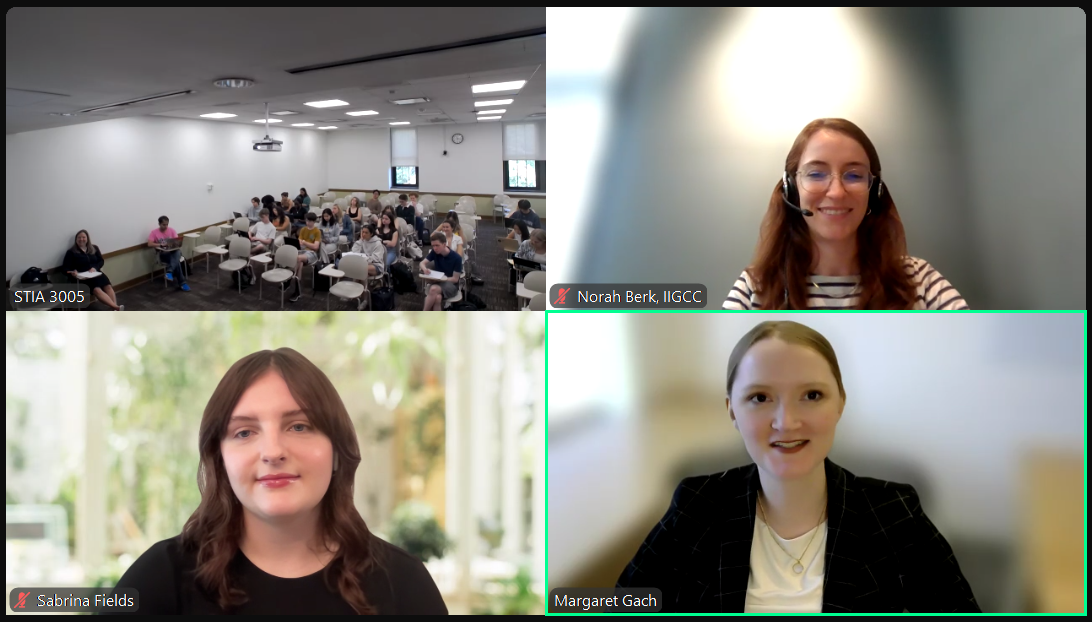Navigating Career Paths: Insights from STIA Alumni
For the final week of the STIA gateway course this semester, Professor Joanna Lewis invited several alumni to speak to the class to share career advice and insights from their journeys post-graduation. The panelists discussed how the STIA program shaped their professional lives and offered guidance on leveraging the degree in a world where career paths are not always linear.
The speakers included Norah Burke (SFS ’15), Senior Programme Manager at The Institutional Investors Group on Climate Change (IIGCC), who joined from London; Margaret Gach (SFS ’19), Program Assistant at the Carnegie Corporation of New York in the International Peace and Security Program, who joined from New York; and Sabrina Fields (SFS ’18), Ph.D. student in the Science, Technology, and Environmental Policy Program at Princeton University, who joined from Princeton.
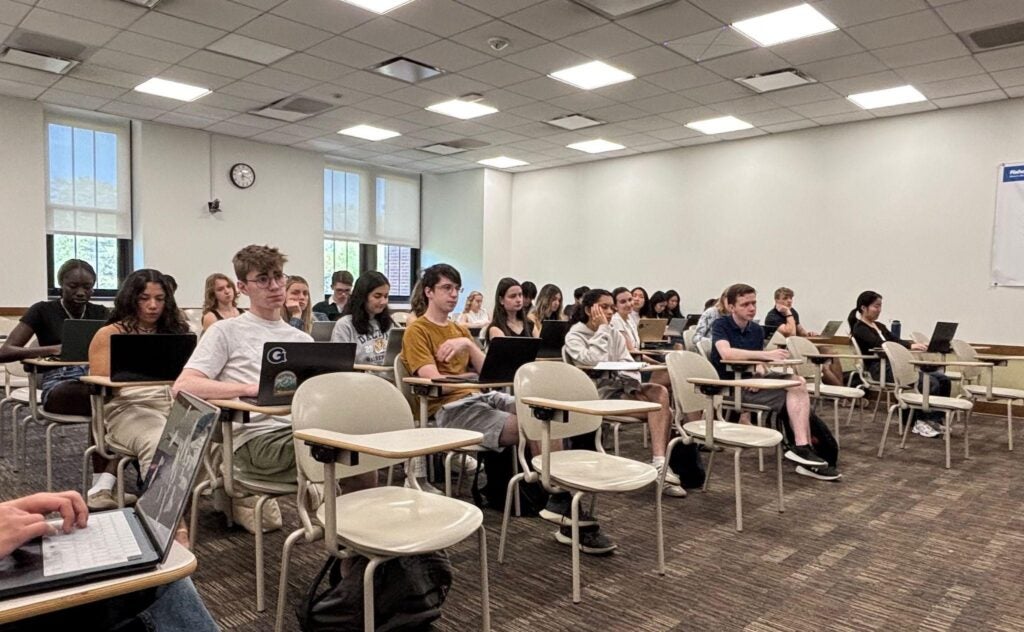
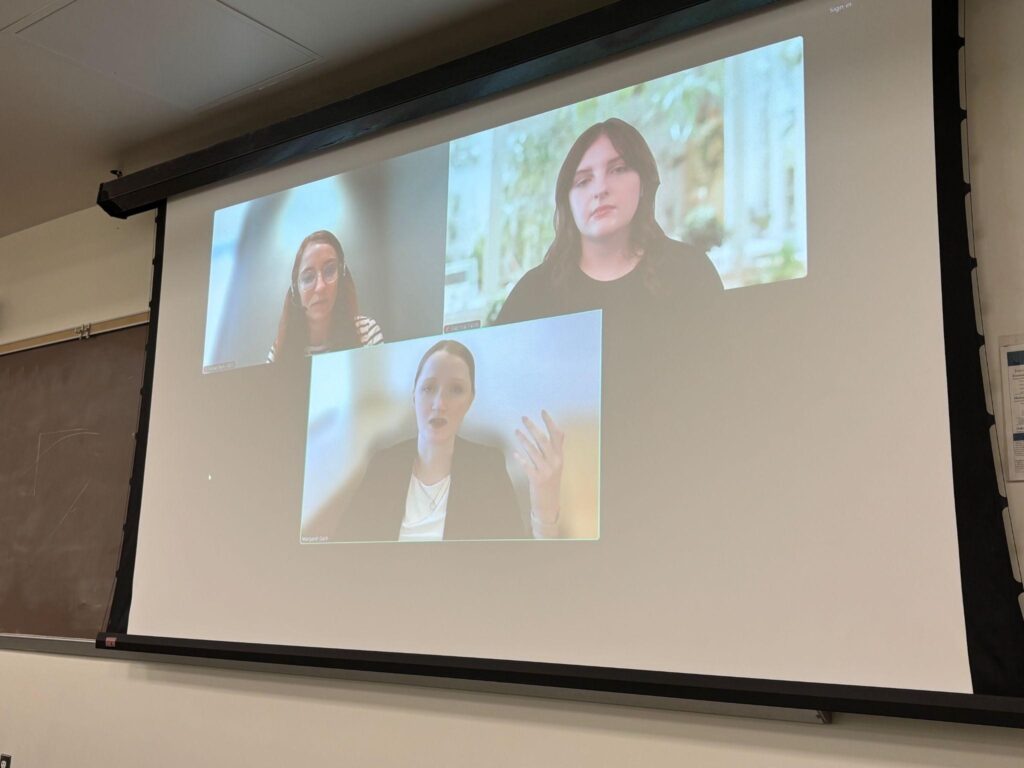
The Versatility of a STIA Degree
STIA’s interdisciplinary approach combines international relations with science, technology, and biomedical studies, enabling graduates to apply their education across a variety of sectors. The panelists highlighted how their STIA degree prepared them for diverse career paths in government, NGOs, and private organizations, emphasizing adaptability and critical thinking.
Sabrina noted how STIA’s mix of hard sciences and policy helped her build the analytical toolkit needed for graduate-level research and academic writing. She talked about how a course with former STIA professor Katharine Olesko helped solidify her interest in nuclear technologies. Margaret reflected on how specific STIA courses on energy and climate policy and international negotiations, and a research assistantship with Professor Lewis, sparked her interest in the diplomacy and governance side of science policy as well as confirmed her interest in focusing on China. She also mentioned that writing policy memos for STIA classes helped build a foundation she uses every day in her work at the Carnegie Corporation.
Mentorship, Networking, and Unpredictability
The alumni stressed the importance of mentorship and networking, noting how relationships both within and outside their professional environments have been essential to their growth. Sabrina shared how she maintains motivation during the long Ph.D. journey by staying connected to mentors and regularly revisiting the real-world applications of her work.
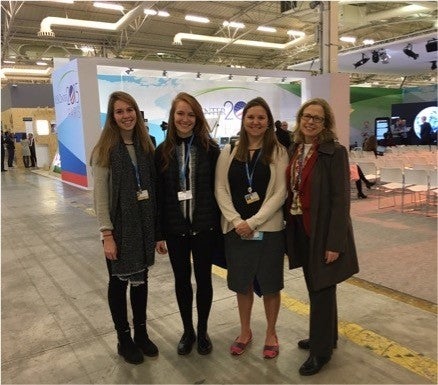
Norah, who has spent much of her post-grad career working abroad, spoke about building a career in London after initially taking a short-term internship there. She highlighted the unique challenges and opportunities of building a professional life outside the U.S., including learning how to navigate different work cultures, professional expectations, and international policy frameworks. Norah emphasized that finding mentors and supportive colleagues overseas has been crucial for staying grounded and thriving in a global context in high schools like the one I attended led me to consider the significance of context and community in my work.”
Margaret advised students interested in federal careers to learn how different departments operate and encouraged using informational interviews to explore these options. Both Norah and Margaret encouraged curiosity-driven exploration within the STIA program, noting that the most valuable insights often come from simply showing up to events, asking questions, and making use of professors’ office hours, as opposed to worrying about grades.
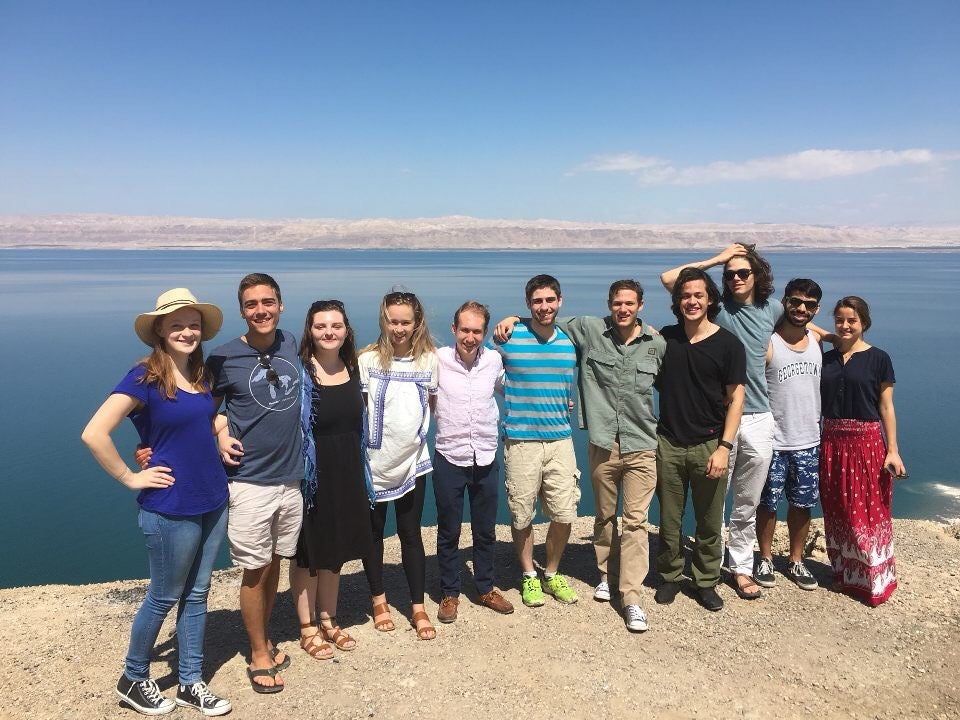
They emphasized that cultivating a strong network of mentors who encourage critical thinking and adaptability is key to career development. A major takeaway from the discussion was the unpredictability of career paths. Panelists shared how their own journeys weren’t always straightforward, highlighting that success often requires flexibility and the ability to adapt to new circumstances. Sabrina also recommended taking advantage of research opportunities and faculty advising early in the program, crediting her independent study experience as instrumental in her decision to pursue graduate school.
Career Possibilities for STIA Graduates
The conversation concluded with each panelist sharing their long-term career aspirations, offering students a glimpse into the range of possibilities available with a STIA degree. Whether focusing on environmental sustainability, policy-making, or international relations, the panelists underscored that STIA graduates are uniquely equipped to tackle global challenges with interdisciplinary knowledge and a global perspective.
Norah mentioned her hope to continue influencing sustainable finance and net-zero strategy in the investment space, while Margaret expressed interest in shaping international policy through foundation work or a return to the policy world. Sabrina reflected on balancing research and teaching and how she hopes to eventually mentor the next generation of policy thinkers.
Their collective message was clear: while the journey from graduation to career success may not be linear, the critical thinking, adaptability, and strong foundation in science and international affairs that STIA provides will open doors to a wide array of impactful careers. As they navigated their own paths, the alumni reflected on how Georgetown’s STIA program not only shaped their professional lives but also empowered them to continuously explore new opportunities and contribute meaningfully to solving complex global issues.
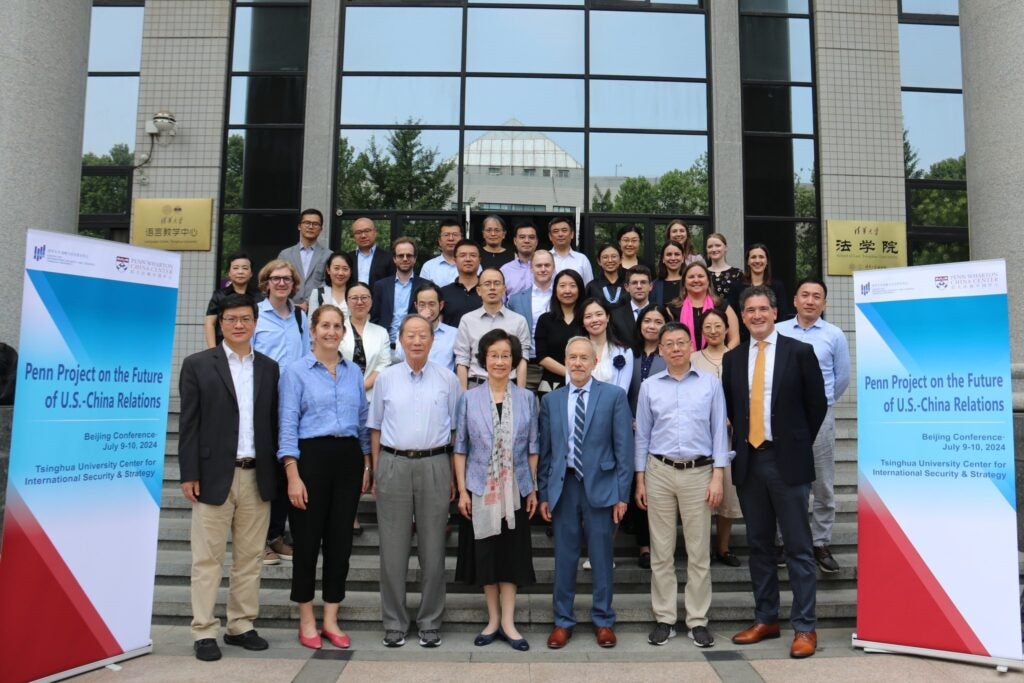
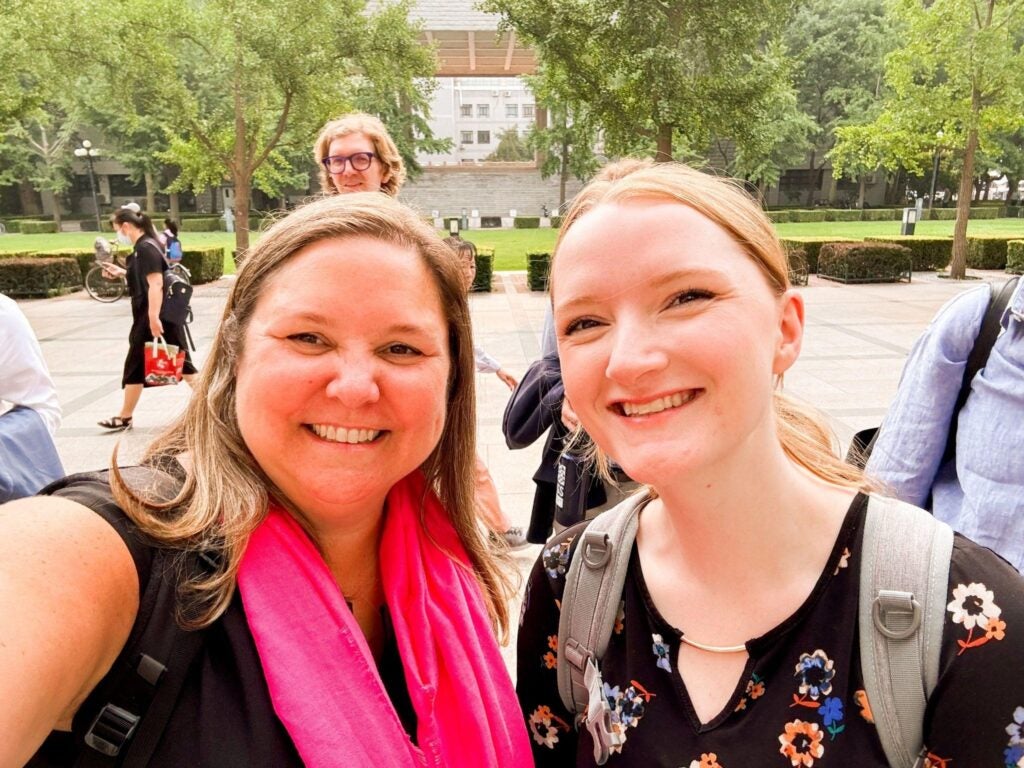
Margaret Gach and Professor Joanna Lewis attended a meeting of the Penn Project on the Future of US-China Relations in Beijing, China in July 2024.
